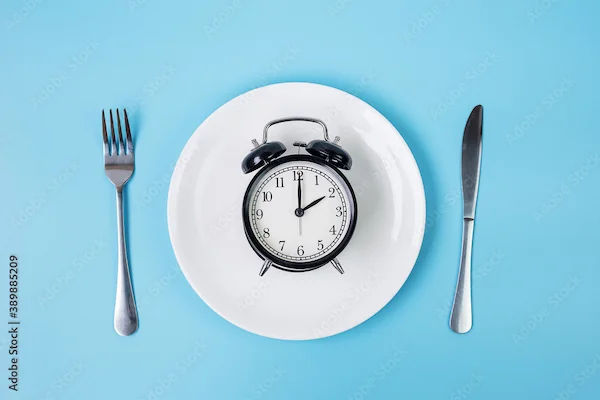Optimal Dinner Timing for Diabetics
Know about dinner time for diabetics, its significance, what should be included and excluded in diet and tips for managing diabetes and blood sugar levels.

Written by
Last updated on 20th Jul, 2025

Introduction
Living with diabetes requires careful attention to diet, exercise, and lifestyle choices. One often overlooked but crucial aspect is meal timing, especially when it comes to dinner. Eating at the right time can help manage blood sugar levels, improve digestion, and promote better sleep. In this article, we’ll explore why dinner timing matters for diabetics and how you can optimise it for better health.
Why Does Dinner Timing Matter for Diabetics?
For people with diabetes, maintaining stable blood sugar levels is essential. The timing of meals, particularly dinner, plays a significant role in:
Blood Sugar Control: Eating too late can cause blood sugar spikes or drops overnight.
Digestion: Late meals may lead to indigestion or acid reflux.
Sleep Quality: Heavy or late dinners can disrupt sleep, which in turn affects insulin sensitivity.
Weight Management: Eating earlier helps the body process food more efficiently, reducing fat storage.
What Is the Best Time to Have Dinner?
Research suggests that finishing dinner 2-3 hours before bedtime is ideal for diabetics. Here’s why:
Better Glucose Metabolism: Eating earlier allows your body to process glucose before sleep, reducing nighttime blood sugar fluctuations.
Improved Insulin Sensitivity: Late-night eating can make insulin less effective, leading to higher morning blood sugar levels.
Reduced Risk of Heartburn & Indigestion: Lying down soon after eating can worsen acid reflux, which is common in diabetics.
A good rule of thumb is to have dinner between 6:30 PM and 8:00 PM, depending on your bedtime.
Consult Top Nutritionists
What Should a Diabetic’s Dinner Include?
Besides timing, what you eat is just as important. A balanced diabetic-friendly dinner should have:
Lean Protein – Chicken, fish, tofu, or lentils help stabilise blood sugar.
High-Fiber Carbs – Whole grains, quinoa, or sweet potatoes digest slowly, preventing spikes.
Healthy Fats – Avocado, nuts, or olive oil improve satiety.
Non-Starchy Vegetables – Broccoli, spinach, and bell peppers add fibre and nutrients.
Avoid:
Refined carbs (white rice, bread, pasta)
Sugary desserts
Fried or processed foods
Tips for Managing Dinner Timing & Blood Sugar
1. Stick to a Schedule – Eat at the same time daily to regulate your body’s insulin response.
2. Keep Portions Moderate – Overeating at night can lead to high morning sugar levels.
3. Walk After Dinner – A 10-15 minute walk helps digestion and lowers blood sugar.
4. Monitor Blood Sugar – Check levels before bed to ensure they’re stable.
5. Stay Hydrated – Drink water instead of sugary drinks, but avoid excess fluids right before bed.
When to Seek Help?
If you struggle with:
Frequent nighttime blood sugar spikes or drops
Poor digestion or sleep due to late meals
Difficulty managing diabetes despite diet changes
It may be time to consult a diabetes specialist or nutritionist.
Final Thoughts
Managing diabetes isn’t just about what you eat it’s also about when you eat. By having an early, balanced dinner and following a consistent routine, you can improve blood sugar control, digestion, and overall well-being. Small changes in timing can make a big difference in your health journey!
Consult Top Nutritionists
Ms. Lakshmi Tejasvi
Clinical Nutritionist
14 Years • M.Sc - Clinical Nutrition
Hyderabad
Vibgyor Nutri, Hyderabad
Dr Sumanth R
General Physician
2 Years • MBBS
Bengaluru
PRESTIGE SHANTHINIKETAN - SOCIETY CLINIC, Bengaluru
Dt. Ila Sharma
Clinical Nutritionist
18 Years • Master in food & Nutrition
Gurugram
VIPUL GREENS - SOCIETY CLINIC, Gurugram
Mrs Sneha P V
Nutritionist
10 Years • Master of science in Food and Nutrition
Bengaluru
Apollo Clinic, Sarjapur Road, Bengaluru




